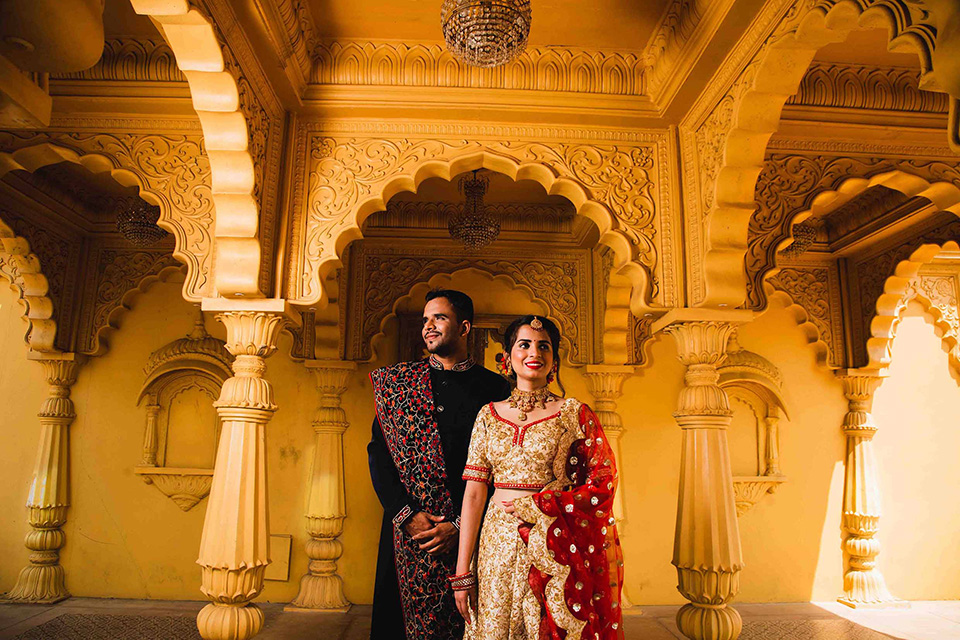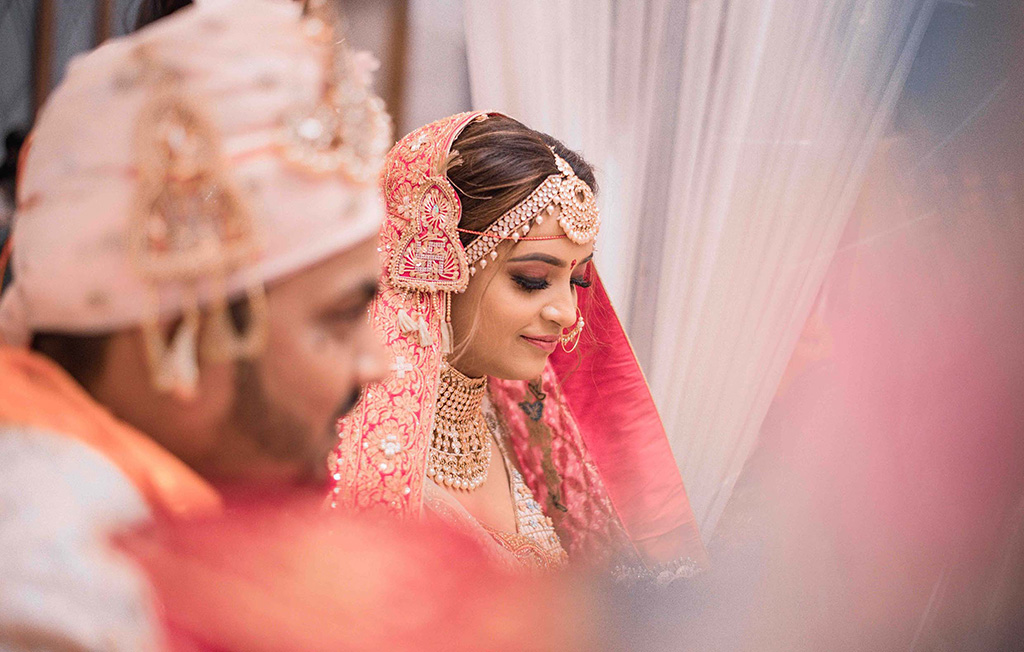wedding photography is more than just a job; it is an art form that captures one of the most significant days in a person’s life. The role of a wedding photography is not merely to take pictures but to preserve memories, emotions, and moments that will be cherished by couples for a lifetime. The profession requires a unique blend of creativity, technical expertise, emotional sensitivity, and business acumen. In this guide, we will explore the many facets of wedding photography, including its significance, challenges, rewards, and what it takes to become a successful wedding photography
1. Capturing Lifelong Memories
wedding photography are milestone events that signify love, commitment, and the beginning of a new chapter in life. The primary role of wedding photography is to document these memories in a way that allows the couple to relive the day for years to come. Wedding photos become treasured heirlooms, often passed down to future generations. These images capture not only the couple’s journey but also the emotions, interactions, and moments shared by friends and family during a pivotal moment in their lives.
Unlike other forms of wedding photography, wedding photography is deeply personal. The photographer’s work creates lasting memories for not only the couple but also their families, helping to preserve the essence of an unforgettable day. These photographs are often displayed in homes, framed, and shared with others, becoming part of a family’s legacy.
2. Telling a Story wedding photography
A wedding day is full of beautiful moments, and the wedding photography role is to capture these fleeting instances and turn them into a narrative. The best wedding photography are storytellers. They not only capture the “big” moments—such as the ceremony, first kiss, and cake cutting—but also the smaller, often overlooked moments: the glances exchanged between the couple, a tear shed by the father, the laughter of friends, and the intimate details of the wedding décor.
Each photograph contributes to a visual story of the day, and when pieced together, they provide a complete and meaningful narrative. wedding photography often aim to document the event in such a way that anyone looking at the photos years later can understand the joy, emotion, and significance of the event, even without knowing the couple personally.

3. Cultural and Emotional Significance
wedding photography are steeped in cultural traditions and personal rituals, and wedding photography play a key role in documenting these elements. Whether it’s a traditional church ceremony, a destination wedding, or a civil ceremony, weddings carry deep cultural, religious, and personal significance. A skilled photographer must not only capture these moments visually but also appreciate and understand the cultural context behind them.
The emotional aspect of wedding photography is equally important. wedding photography are emotional events, filled with joy, tears, and significant moments. The ability to connect with the emotions of the day and capture them authentically requires a photographer who is not only skilled technically but also attuned to the human experience. A wedding photography must know how to anticipate moments, understand the dynamics of the day, and be sensitive to the emotional atmosphere surrounding them.
The Essential Skills of a wedding photography
1. Technical Expertise wedding photography
wedding photography requires a solid understanding of the technical aspects of wedding photography. This includes knowledge of exposure settings, lighting, composition, and the ability to operate different types of equipment. Photographers must be able to use their camera settings creatively to capture different types of shots under various lighting conditions.
Lighting is particularly important in wedding photography, as many weddings take place in low-light venues or outdoors, and the lighting conditions can change throughout the day. A wedding photography must be proficient in using both natural and artificial light to create beautiful and well-exposed images. Whether it’s adjusting the settings for indoor receptions or using flash and reflectors for portraits, technical expertise is crucial for creating professional-quality photographs.
2. Creativity and Artistic Vision wedding photography
While technical knowledge is essential, creativity and artistic vision are what separate great wedding photography from good ones. The best wedding photography bring a unique perspective to their work, using their creativity to compose stunning images that tell a story.
Whether it’s capturing the couple’s first look, a quiet moment between the bride and her parents, or a dramatic portrait with a scenic backdrop, creativity allows the wedding photography to approach each wedding in a way that reflects the couple’s personality and the overall theme of the wedding. The ability to create visually compelling and artistic images while maintaining the essence of the moment is a hallmark of a skilled wedding photography
3. People Skills and Emotional Intelligence wedding photography
wedding photography work with people—often large groups of people—throughout the entire day. From the couple to the bridal party, family members, and guests, a wedding photography must have excellent people skills to manage a variety of personalities and situations. In particular, the wedding photography must know how to give clear and gentle directions, put people at ease, and handle family dynamics diplomatically.
wedding photography also need emotional intelligence to be able to read the mood of the couple and their guests. Weddings can be emotionally charged events, and a photographer must be sensitive to the couple’s feelings and expectations. Additionally, photographers must be able to remain calm and composed, especially during stressful moments, such as when the couple is running behind schedule or when there are unexpected issues during the day.
4. Organizational and Time Management Skills wedding photography
A wedding day is a fast-paced event with many moving parts, and wedding photography must be highly organized to ensure they capture all the key moments. From the bride’s preparation to the reception, there is a schedule to follow, and it’s crucial that the photographer stays on track to avoid missing important shots.
Time management is equally important in wedding photography. Photographers must be able to efficiently manage their time to ensure they capture all the necessary moments without feeling rushed. A well-organized photographer will know when and where to be, what equipment to use, and how to work with the wedding coordinator to stay on schedule.
The Challenges of wedding photography
1. High-Pressure Environment wedding photography
wedding photography is a high-pressure profession. The photographer is expected to document one of the most important days in a couple’s life, and there is little room for error. Missing a key moment, such as the first kiss or the couple’s first dance, can lead to disappointment for the couple and their families. wedding photography must be able to handle the pressure and deliver high-quality work without being overwhelmed by the responsibility.
Moreover, wedding photography rarely go according to plan. The couple may run late, the weather might change unexpectedly, or there may be unforeseen challenges such as technical issues with the camera. The photographer must be flexible and adaptable, able to handle these issues with grace and professionalism.

2. Long Hours and Physical Demands wedding photography
wedding photography often work long hours. A typical wedding day can last anywhere from 8 to 12 hours, and the photographer is expected to be present for the entire event, from the bride’s preparations to the reception’s last dance. This can be physically demanding, as wedding photography spend long hours on their feet, moving from one location to another, adjusting equipment, and taking numerous shots.
Additionally, the work doesn’t stop when the wedding ends. After the event, the wedding photography spends a significant amount of time editing photos, selecting the best shots, and preparing them for delivery. The hours spent editing can be just as exhausting as the wedding day itself.
3. Managing Client Expectations wedding photography
One of the biggest challenges for wedding photography is managing client expectations. Every couple has a vision of how they want their wedding day documented, and photographers must balance these expectations with the realities of the event. Sometimes clients request specific shots or have unrealistic expectations about what can be achieved given the time, space, or lighting conditions available.
Photographers must communicate clearly with clients prior to the wedding to ensure they understand what is feasible. While it’s important to cater to the couple’s needs, photographers must also be able to explain what is achievable within the given circumstances. Misunderstandings about the scope of the work, image delivery time, or the overall photography style can lead to frustration on both sides.
4. Competitive Market wedding photography
wedding photography is a competitive industry. There are many wedding photography vying for clients, and standing out in a crowded market can be challenging. New wedding photography may find it difficult to secure bookings, especially if they lack experience or a well-established portfolio.
Experienced photographers also face competition, as couples today have many options, including budget-friendly photographers or wedding photography who offer discounts. In addition, some couples may opt for DIY wedding photography or choose friends or family members to take photos. In such a competitive environment, wedding photography must continuously work on building their personal brand, marketing their services, and ensuring they offer a quality experience to clients.
5. Unpredictable and Challenging Environments wedding photography
wedding photography are unpredictable, and photographers must be prepared for a range of environmental challenges. Weather conditions, lighting issues, crowded venues, and large wedding photography parties can all present obstacles that the photographer must navigate. Whether it’s harsh midday sunlight, dimly lit venues, or chaotic reception settings, a wedding photography must be able to think on their feet and adjust their approach to capture the best images in any environment.
Additionally, wedding photography often involve large groups of people, and it can be difficult to coordinate group photos, especially when family dynamics come into play. Some guests may be difficult to photograph or may be uncooperative, requiring the wedding photography to use their interpersonal skills to manage the situation.
The Rewards of wedding photography
1. Creative Satisfaction wedding photography
One of the most rewarding aspects of wedding photography is the creative satisfaction that comes from capturing beautiful images. wedding photography have the opportunity to create stunning photographs that blend art and storytelling. The ability to bring a couple’s vision to life, craft beautiful portraits, and tell the story of a wedding day through photos is incredibly fulfilling.
Photographers often take pride in their work and enjoy seeing how their photographs are appreciated by the couple, their families, and friends. The sense of accomplishment that comes from producing high-quality, emotionally powerful images is one of the greatest rewards of wedding photography.
2. Building Relationships and Networking wedding photography
wedding photography allows photographers to build lasting relationships with their clients. By working closely with couples and their families, photographers often form deep connections, which can lead to repeat business or referrals. Many wedding photographers also develop strong networks with other wedding vendors, such as florists, event planners, and venues, which can lead to collaborative opportunities and additional business.
Networking within the wedding industry can be valuable for both professional and personal growth. wedding photography have the chance to work with other talented individuals, learn from them, and expand their exposure to new clients.
3. Financial Stability and Growth wedding photography
wedding photography can be a lucrative career, especially for wedding photography who build a strong client base and reputation. Couples often have substantial budgets for their wedding photography, and successful wedding photography can command high prices for their services. In addition to the wedding photography itself, photographers can offer additional services such as engagement shoots, custom albums, or prints, which can further increase their income.
Experienced wedding photography who develop a niche, such as specializing in destination weddings or high-end luxury weddings, can charge even higher fees and establish a lucrative business. The potential for financial growth and stability is one of the key attractions of wedding photography

Conclusion
wedding photography is a multifaceted profession that combines creativity, technical skill, emotional intelligence, and business savvy. While it offers numerous rewards, including emotional fulfillment, artistic satisfaction, and financial opportunities, it also presents significant challenges. The high-pressure environment, long hours, and unpredictable nature of weddings require wedding photography to be adaptable, skilled, and resilient.
For those who are passionate about storytelling through images, love working with people, and are willing to put in the hard work, wedding photography can be a highly rewarding career. The ability to capture a couple’s most important day, build meaningful relationships, and create lasting memories makes wedding photography an incredibly fulfilling profession. However, success in this field requires dedication, continuous learning, and the ability to handle the complexities and demands that come with being a wedding photography














